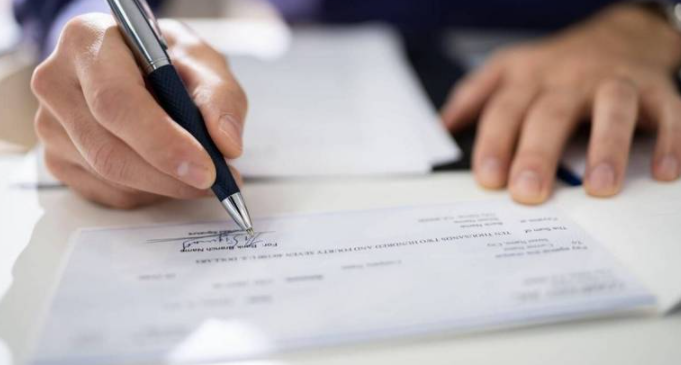The defendants were also convicted of criminal complicity, fraud and attempted fraud.
Three men have been sentenced to two years in jail and fined Dh350,000 each after they were found guilty of multiple charges, among them was using others’ Emirates IDs to encash cheques.
The defendants were also convicted of criminal complicity, fraud and attempted fraud. The Dubai Court of First Instance ordered that they be deported at the end of their imprisonment and after paying the fines.
The three African men – one of them a fugitive – reportedly talked victims into transferring money to the bank accounts of the runaway defendant. One of them, a 38-year-old expat, was arrested by the Dubai Police after trying to encash a cheque at a bank, using another man’s Emirates ID.
The expat confessed that he got the ID from a 36-year-old accomplice and was supposed to receive one per cent of the amount on every cheque he would be able to encash, court records show.
He admitted to interrogators that he had done it before, fraudulently obtaining a total of Dh350,000 on three different occasions. He said he had given the money to the accomplice.
On June 2, he went to a bank at a mall and was about to carry out the same scheme but he was caught. A bank employee alerted the cops.
A police lieutenant said: “The bank employee called the police as she suspected that the ID card he presented was not his own. We arrested him and we seized the cheque and the ID card.”
In another incident, the trio tried to defraud an Arab man of Dh75,000 via e-mail, pretending to work for a realty firm and claiming that his rent was due for payment. They sent him the bank account number of the fugitive who then claimed to be representing the real estate company. However, they were exposed before they could obtain the amount.
Two of the defendants have been detained, while the fugitive stood trial in absentia. The case dates back to February 6 and was registered at Al Barsha police station.
The lieutenant told the public prosecution investigator that the whole scam was planned and run by the other accused (who was also detained).
The court ruling has been appealed.



